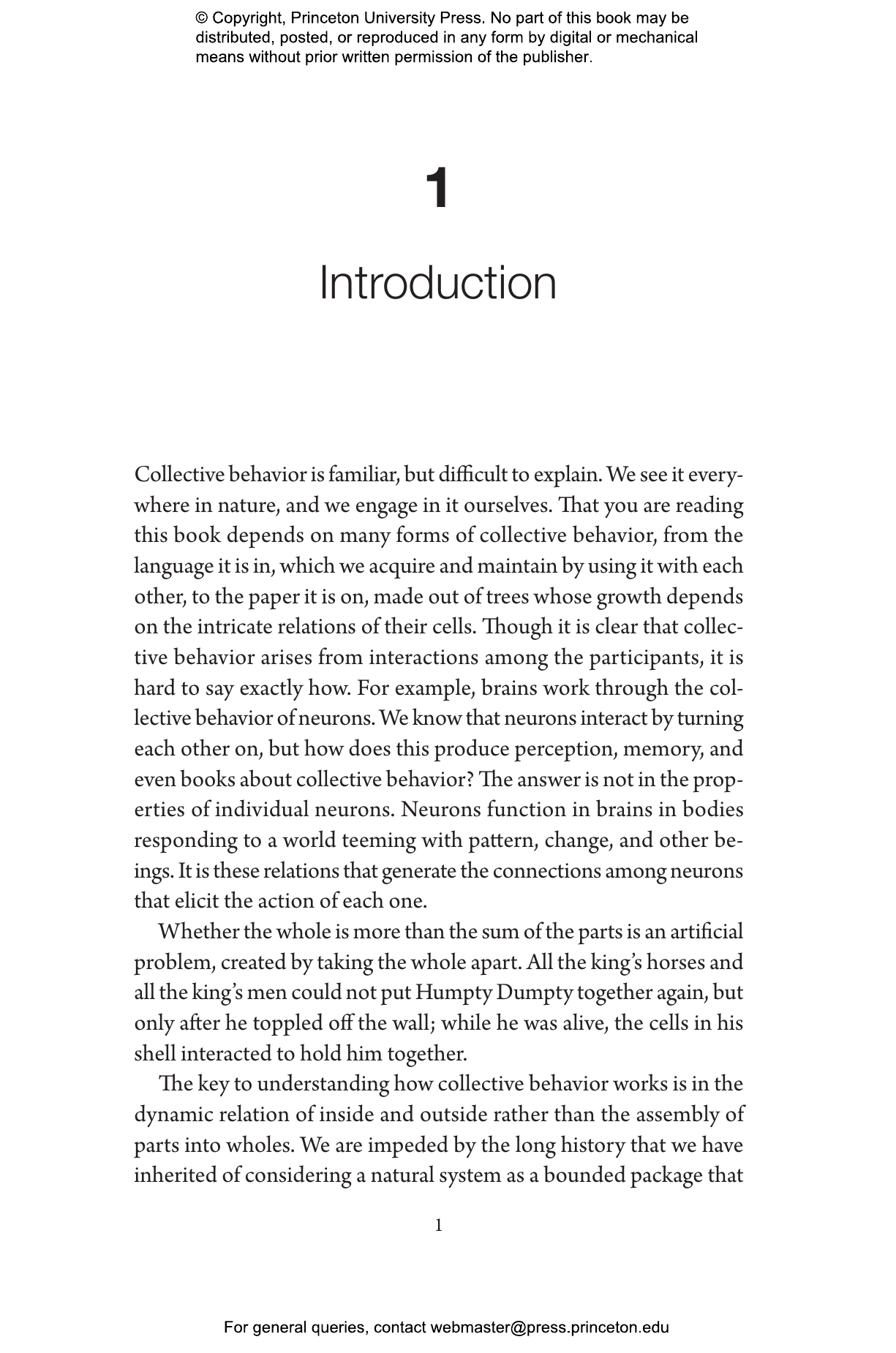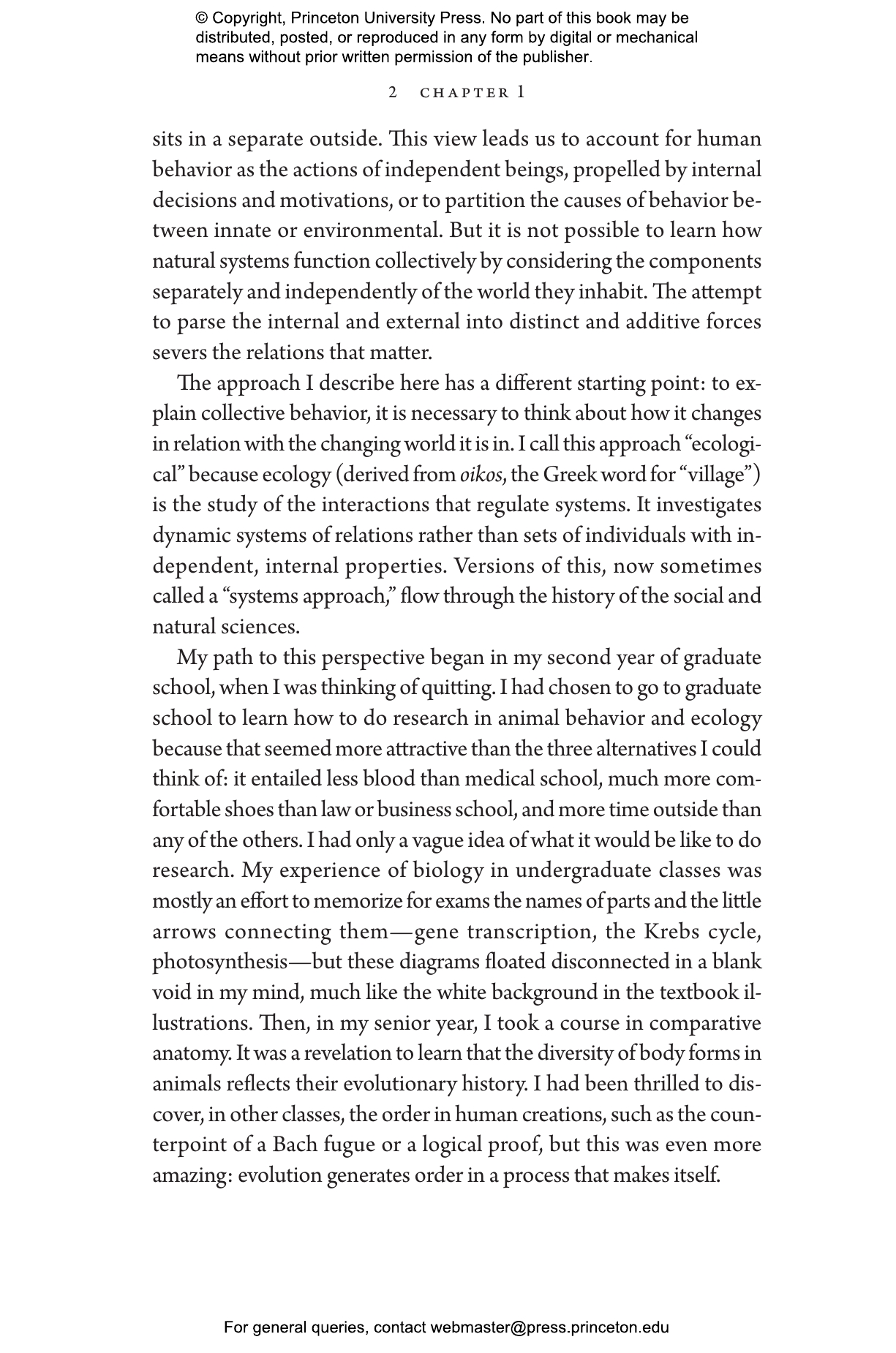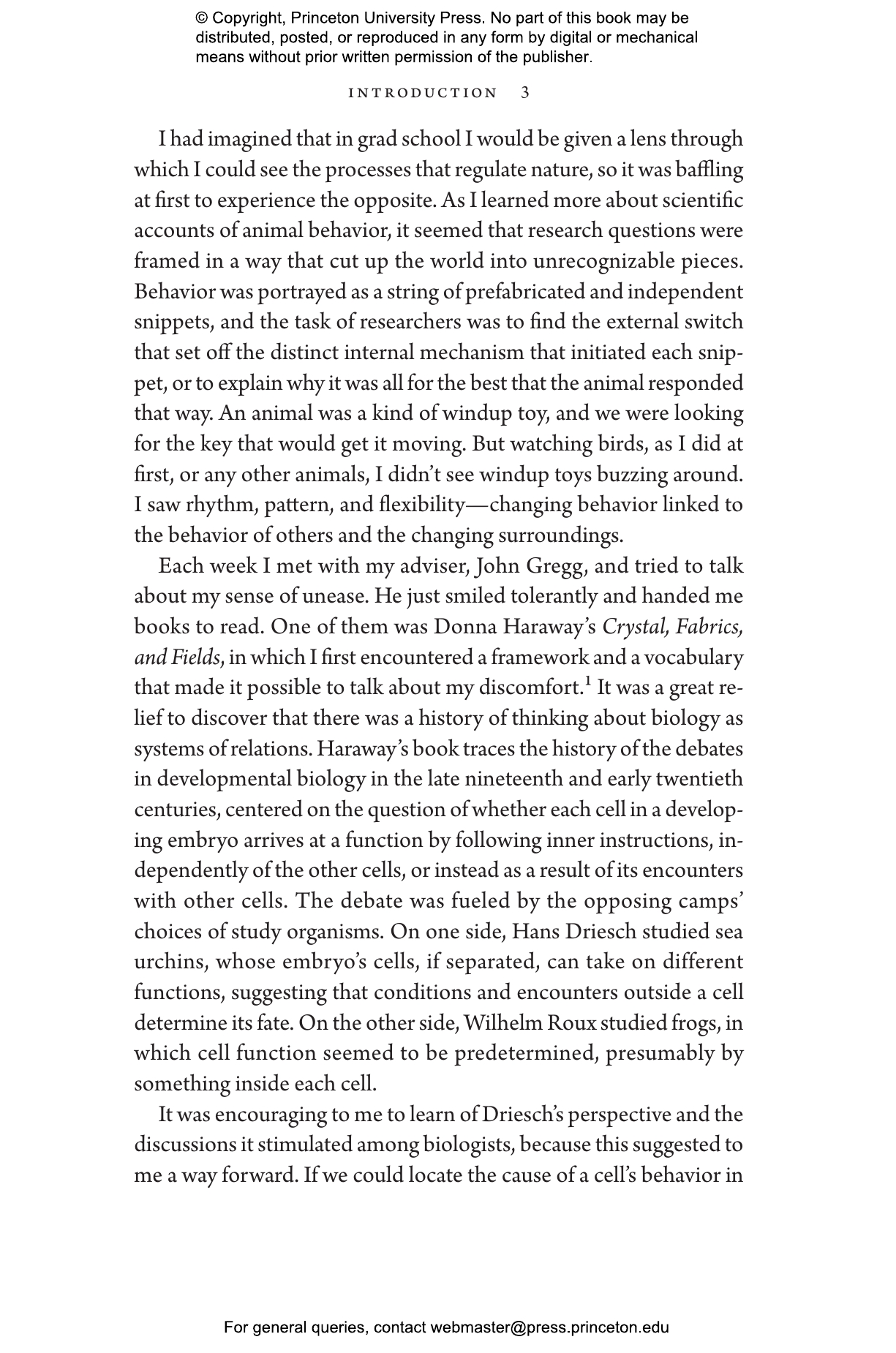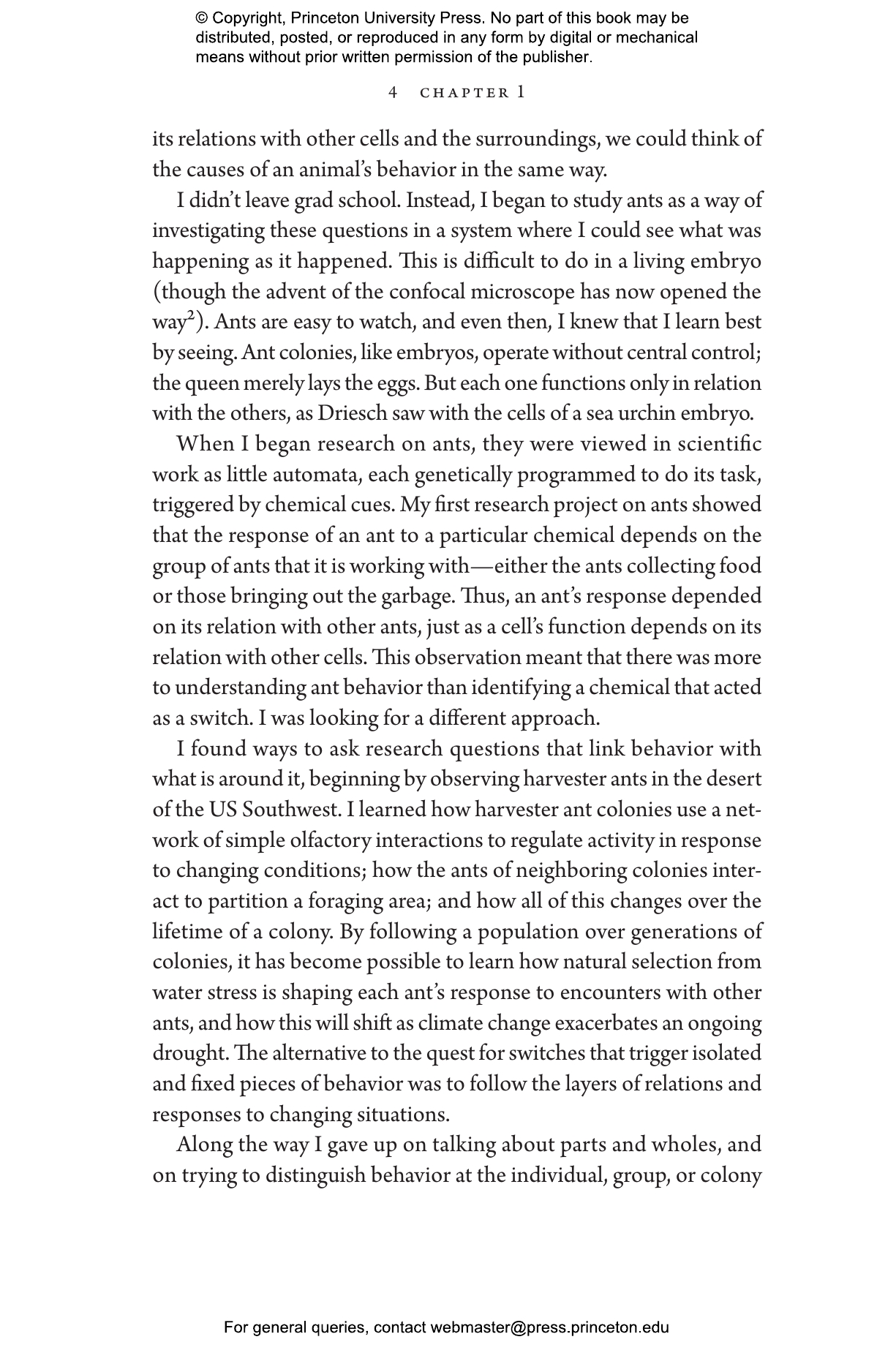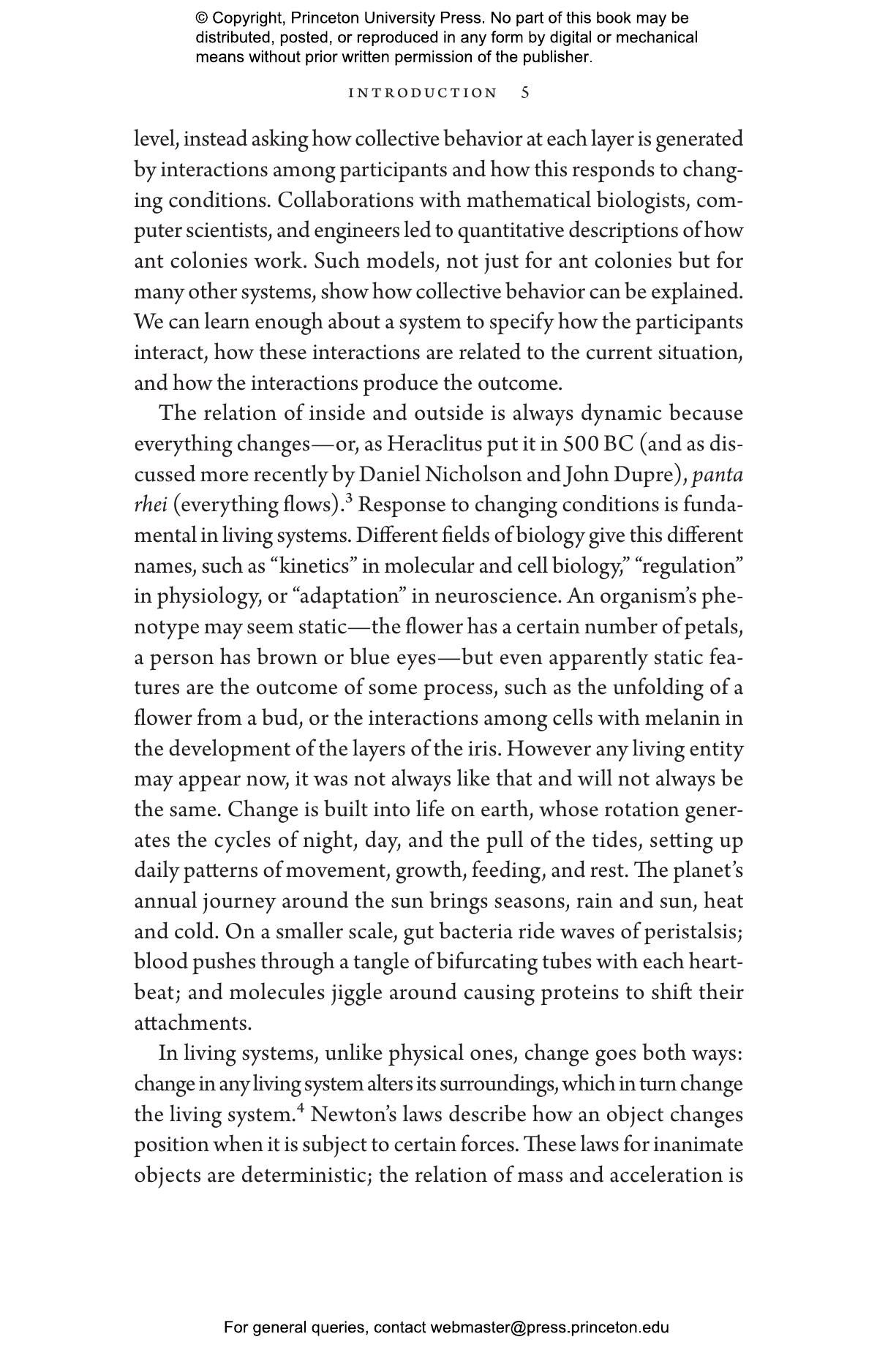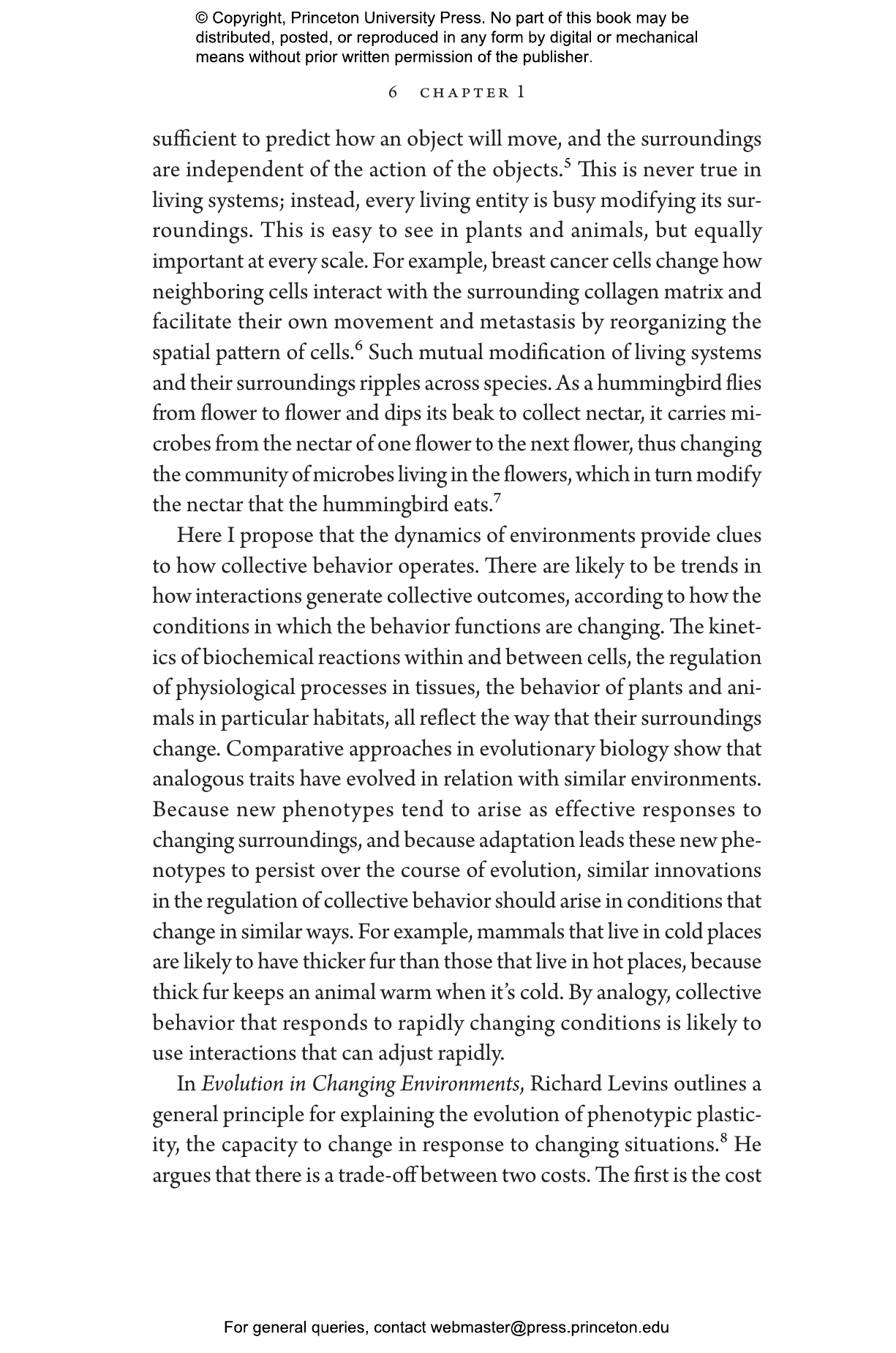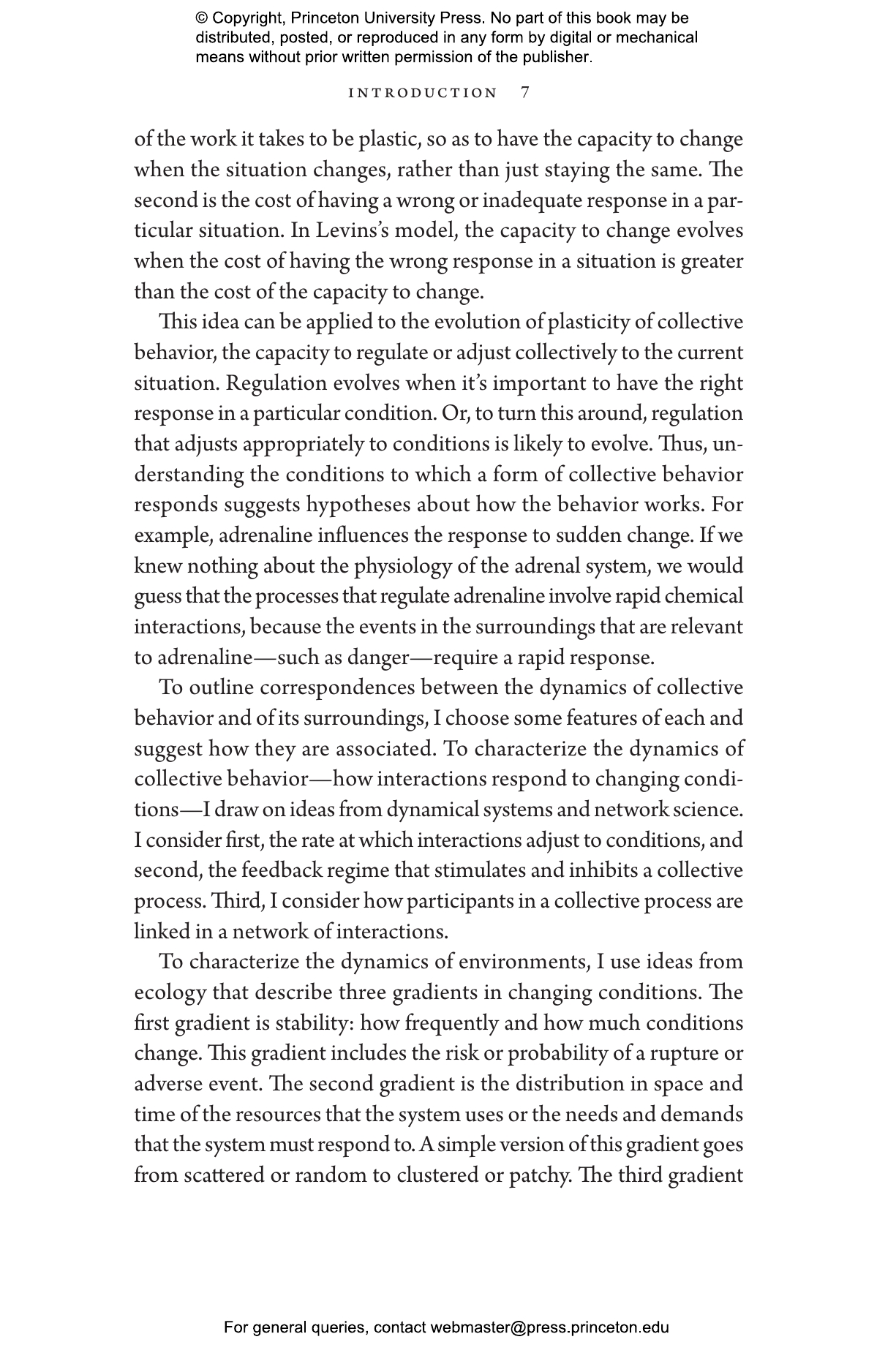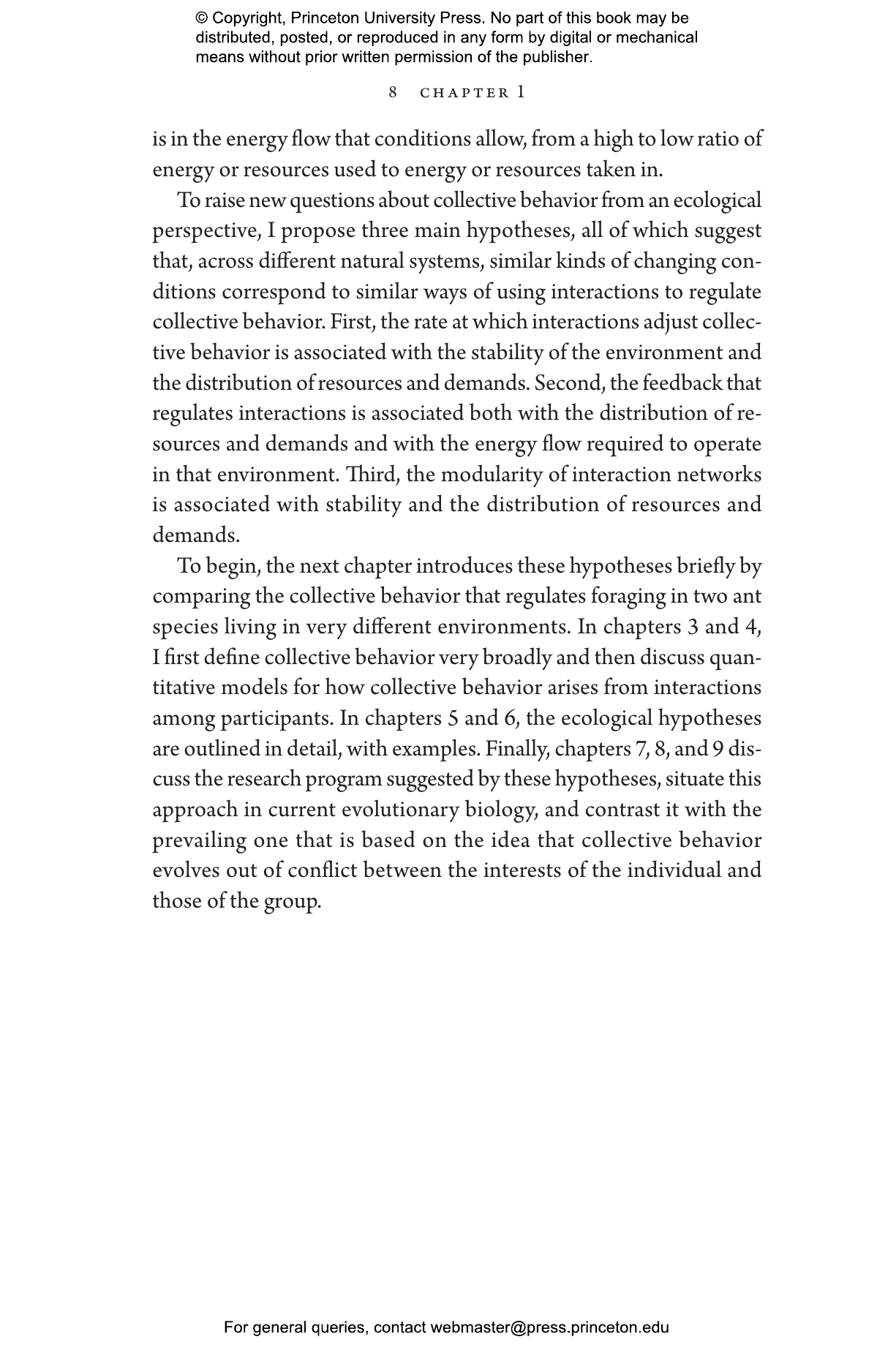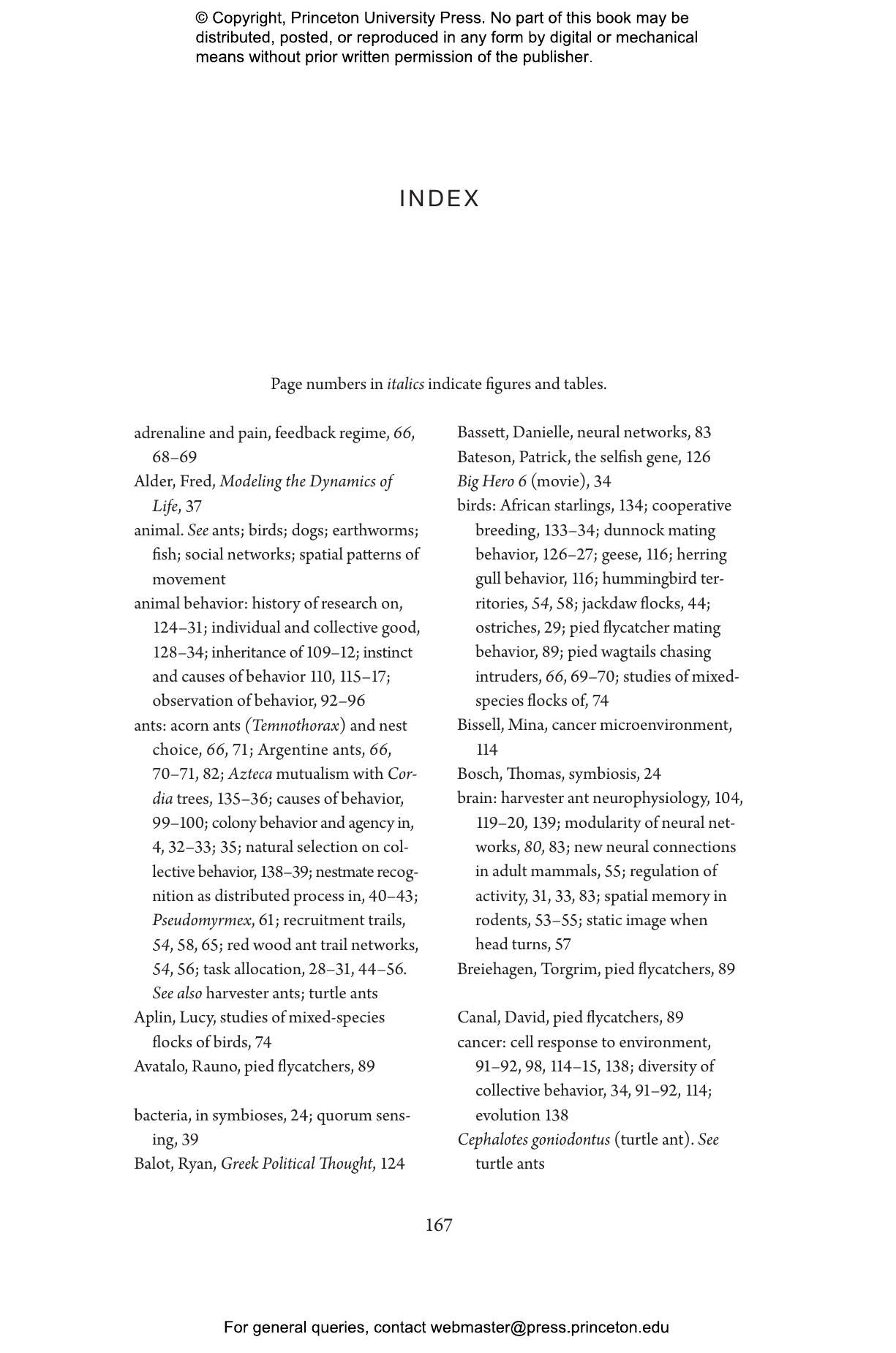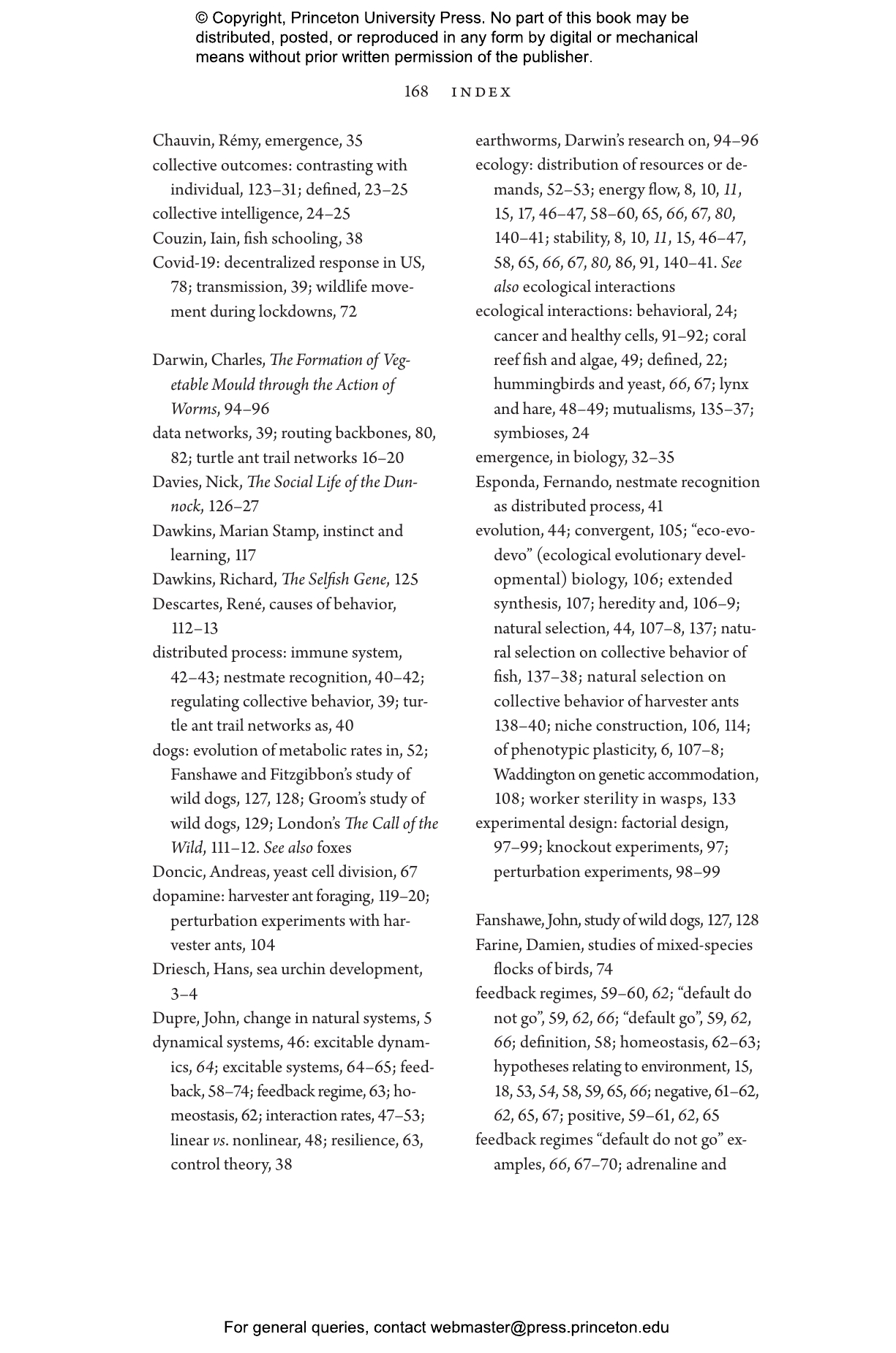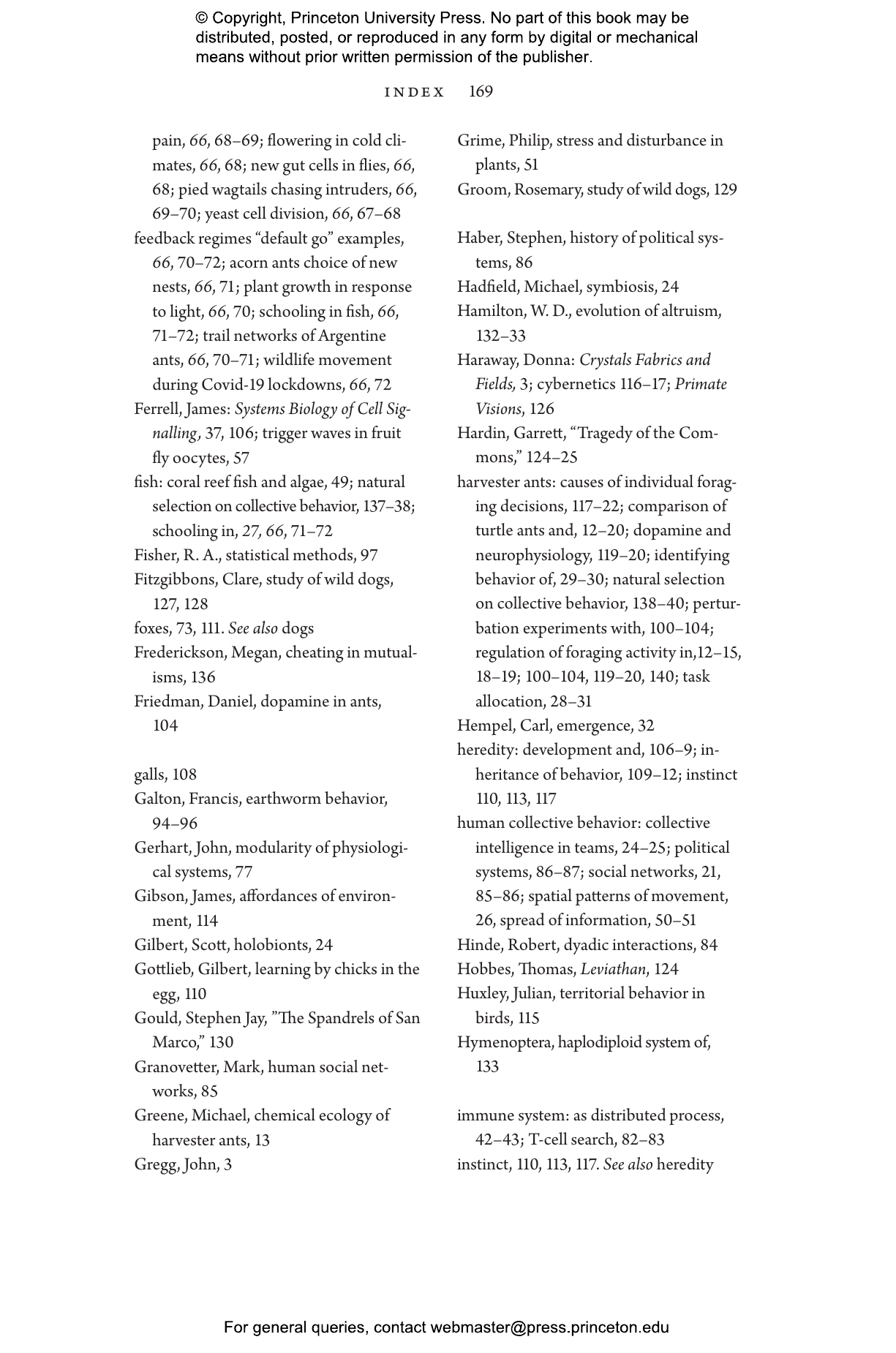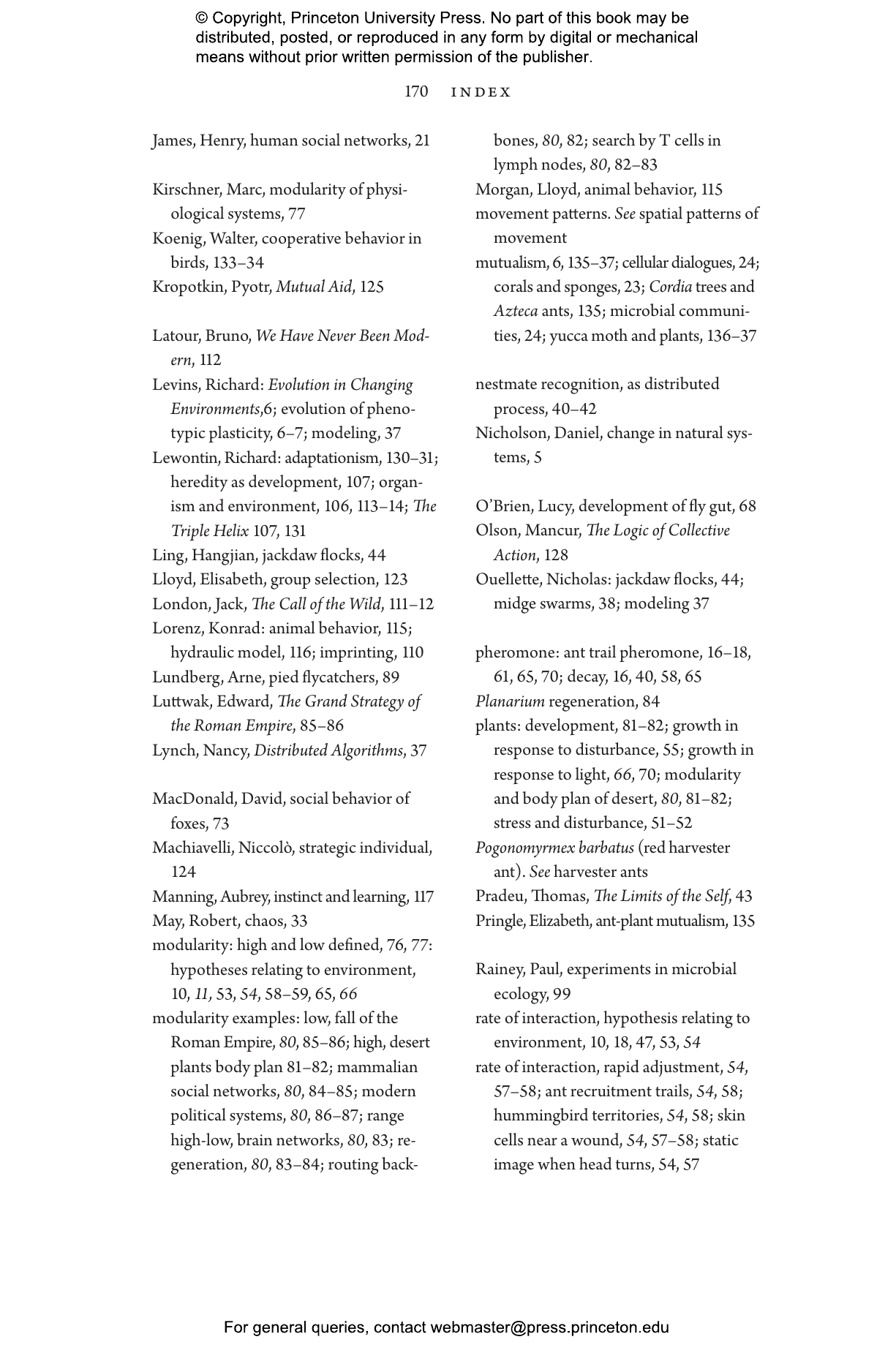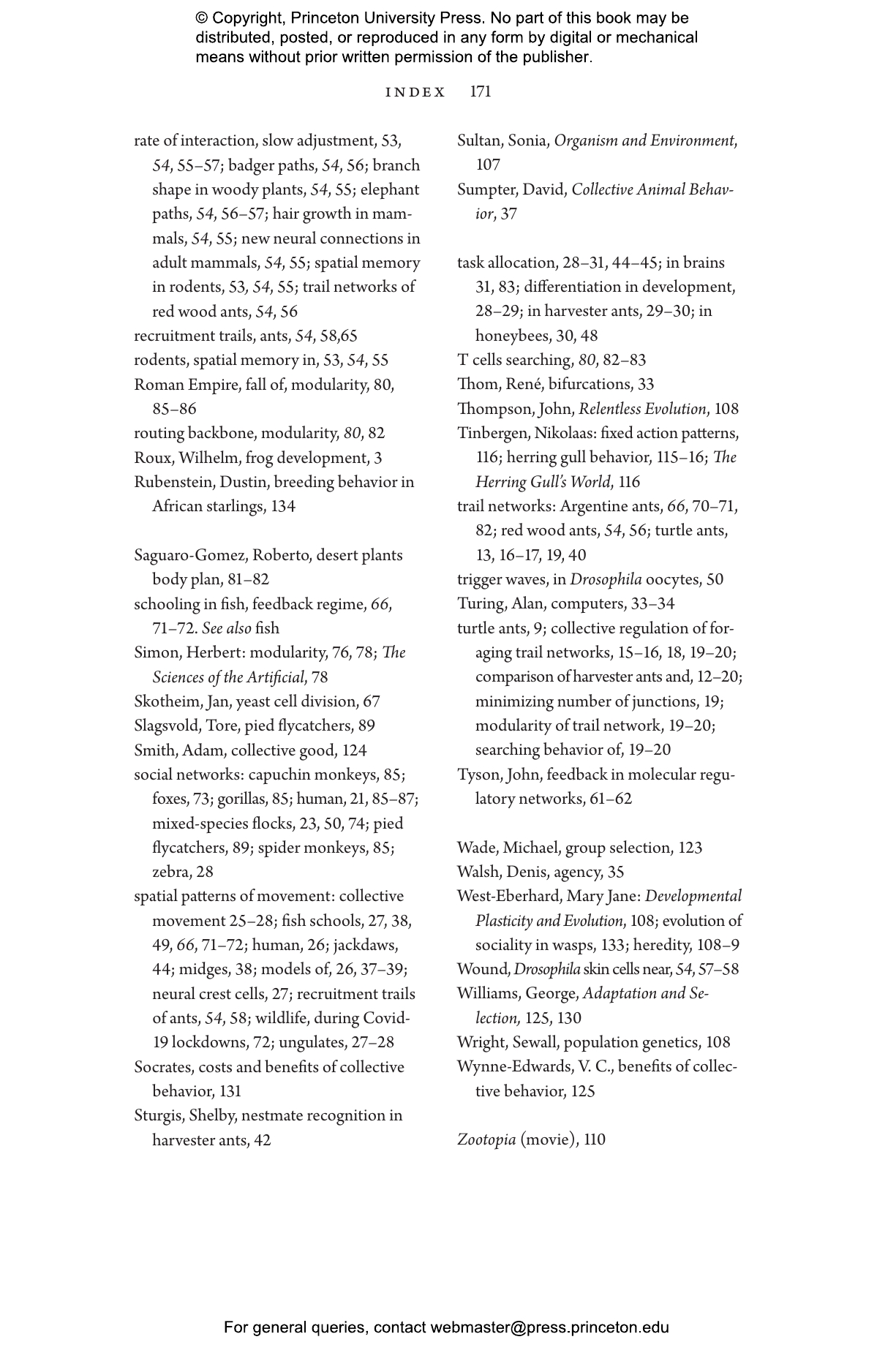Collective behavior is everywhere in nature, from gene transcription and cancer cells to ant colonies and human societies. It operates without central control, using local interactions among participants to allow groups to adjust to changing conditions. The Ecology of Collective Behavior brings together ideas from evolutionary biology, network science, and dynamical systems to present an ecological approach to understanding how the interactions of individuals generate collective outcomes.
Deborah Gordon argues that the starting point for explaining how collective behavior works in any natural system is to consider how it changes in relation to the changing world around it. She shows how feedback use—the means by which networks of interactions operate—and the organization of interaction networks evolve to reflect the stability and demands of the environment. Ant colonies function collectively, and the enormous diversity of species in different habitats provides opportunities to look for general ecological patterns. Through an in-depth comparison of ant species, Gordon identifies broad trends in how the diversity of collective behavior in many other collective systems reflects the dynamics of the environment.
Shedding light on how individual actions give rise to group behavior, The Ecology of Collective Behavior explains the evolution of collective behavior through innovation in participant interactions, offering new insights into how collective responses function in changing conditions.
Awards and Recognition
- A Choice Outstanding Academic Title of the Year
Deborah M. Gordon is professor of biology at Stanford University. She is the author of Ant Encounters: Interaction Networks and Colony Behavior (Princeton) and Ants at Work: How an Insect Society Is Organized.
"Based on her many years of work with two ant colonies, one in an arid desert and one in a lush tropical forest, Deborah M. Gordon has written a detailed, incisive account of the differences in their collective behaviours, and the extent to which behavioural patterns are influenced by their environment."—David M. Gascoigne, Travels With Birds
"An expansive view of the theory of collective behavior. . . . [The Ecology of Collective Behavior] goes beyond earlier models proposed in evolution and ecology (e.g., individual versus group selection). Gordon proposes new and productive avenues for studying the complex interactions of organisms and environment."—Choice
"Though this book is aimed at biologists studying collective behaviour, the subject matter here is easily accessible to ecologists and evolutionary biologists more generally. The verbal argumentation and numerous examples also put this book within reach of interested general readers. The emphasis on an actionable framework illustrated by [Gordon’s] decades-long research on ants makes for a particularly grounded, can-do book. Overall, a very interesting perspective."—Leon Vlieger, The Inquisitive Biologist
“This engaging and thought-provoking book presents an ecological approach to the study of collective behavior, challenging more traditional approaches to the subject by emphasizing how systems interact with and respond to their environments rather than focusing on behavioral rules. The Ecology of Collective Behavior contributes a valuable perspective to the field.”—Ariana Strandburg-Peshkin, University of Konstanz
“Gordon provides a very useful introduction to the study of collective behavior that is timely given the growing recognition of the need to develop a better understanding of the factors leading to diverse collective outcomes.”—Jessica Flack, Santa Fe Institute




